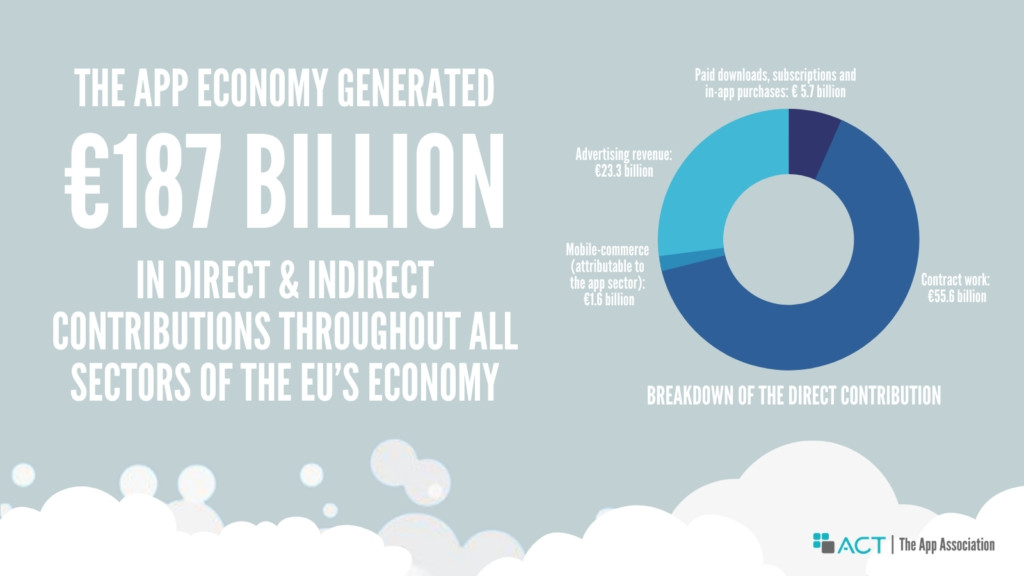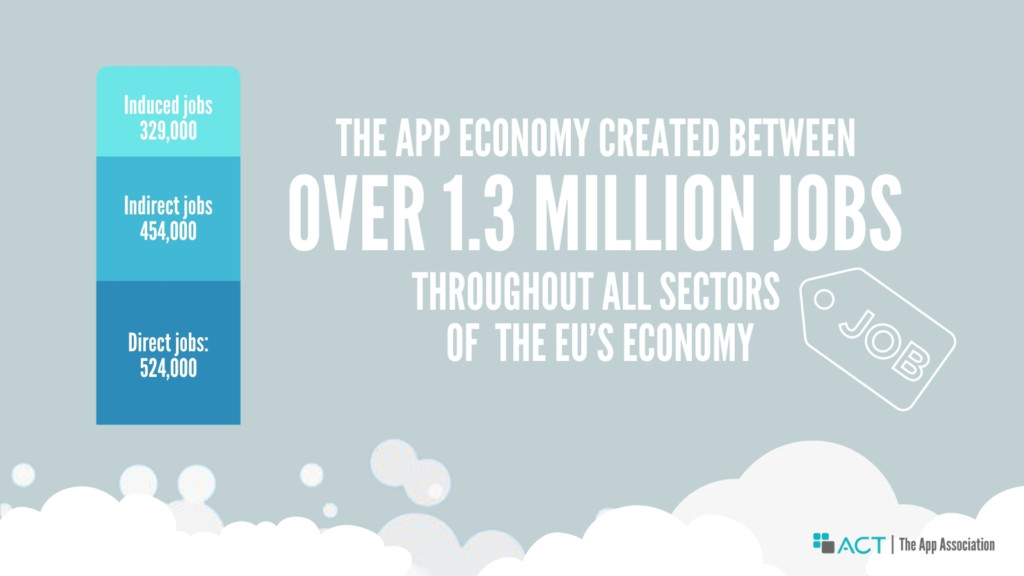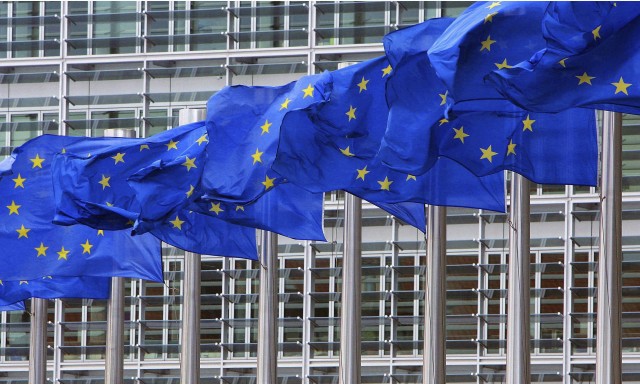On 15 September 2021 the President of the European Commission, Ursula von der Leyen, delivered the State of the Union address. Every year in September, the Commission president takes stock of the achievements of the past year and presents the priorities for the year ahead. This year, she not only looked back at a year where the COVID-19 crisis took up a large part of the European Union (EU) agenda, but she also reflected more specifically on the Digital Single Market. Next to that, von der Leyen announced a new European Chips Act, touched on the role of platforms and stressed the need to foster innovation.
For ACT | The App Association, this is also a good moment to look back at the year and reflect on the state of the ecosystem that generated €187 billion in revenues in the EU alone and is responsible for more than 1.3 million European jobs: the app economy.

Data: The App Economy in the European Union (Deloitte, June 2020)
In her State of the Union address, President von der Leyen touched on the situation in Europe related to COVID-19 and the NextGenerationEU recovery funds that were made available. For example, digital spending in NextGenerationEU will even overshoot the 20 per cent target.
For app makers, this has been a crucial time. For many businesses, this period has been particularly hard. The app sector stepped up to these challenges with a spike in innovation, making this period an incredibly productive one. Many Europeans saw apps becoming an integral part of their daily lives – for some users for the first time. We worked remotely, ordered food online, connected with friends and family, learned new skills, and tried to stay active with sports and fitness apps.
Small tech businesses played an integral part in these innovations. For this to work, the ecosystem – with many types of companies interacting closely with each other – needs to work together. For example, our members benefit from the network effects of the multi-sided platform market and the symbiotic relationship that exists between app stores, developers, and users.

Data: The App Economy in the European Union (Deloitte, June 2020)
Zooming in on microchips, the Commission President stressed the need to “ensure our security of supply” and expressed hope that the EU would “develop new markets for ground-breaking European tech”. We applaud the drive towards a state-of-the-art European chip ecosystem, including production. At the same time, small businesses still face many challenges – especially when it comes to creating devices that connect to the internet. Those microchips that, as President von der Leyen put it, “make everything work: from smartphones and electric scooters to trains or entire smart factories” are not the only thing you need. The internet of things landscape is still global and small innovators face huge issues when it comes to the patents they need to use standards like 4G, 5G, Wi-Fi, and many more.
Looking at developers in the EU, we see a very different set of issues. For example, in the field of mHealth, digital health tools such as wireless health products and mobile medical devices, cloud-based portals and dashboards, demonstrate an ability to assist in tracing COVID-19 cases, staying in touch with your doctor, improving your mental health, or monitoring a chronic disease. Because health policies are not an EU competence but rather a prerogative of the Member States, the offering of health products is particularly complex for small businesses. With so much innovation in this field, the importance of apps in health will only continue to increase.
In a Union where over 75 per cent of the population owns a smartphone, the app economy is an increasingly important focus of regulation. With the important changes coming up for app developers under the European Commission’s “Digital Services Act package”, regulators are trying to balance regulating tech companies while keeping in place the benefits they bring to consumers. Because of how interconnected the ecosystem is, and the rapid developments that are seen in the sector, that’s not an easy task.
After a time of rapid innovation, we should cherish the small innovators that helped make our live a little bit better, and we should keep the momentum of innovation going for the benefit of European consumers and our economy.
Viva l’Europa – long live Europe.
